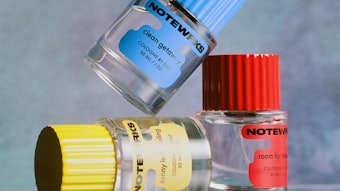Global fragrance sales are making a comeback from their depressed levels in 2009 and the most recent holiday shopping season is expected to be a boom year for the fragrances market, says a recent industry report.
Although final sales numbers aren't released yet for the 2012 holiday shopping season, Companies & Markets noted in a recent report that every adult in Britain is expected to spend £17.59 on perfume gifts during the holiday shopping season. Scent sales are up 6% from the prior year, and a total of £790 million is expected to be spent in the U.K. during the festive season.
The report noted that Proctor & Gamble's James Bond 007 after-shave has been a huge seller and has already made it into the top 10 men's fragrances and is already outselling big brands like Paco Rabanne, Prada, and Armani. Also, Coty's Fame by Lady Gaga perfume has sold well and has already broken into the top 10 women's fragrances this season.
Also noteworthy, fragrance sales are bucking the trend of much lower retail sales in other areas. Traditionally a massive 54% of the total annual expenditure on perfume is on presents for loved ones during the holiday season, according to the report.
The global fragrances market was one of the beauty and personal care categories that suffered the most during the economic recession, with growth falling to a mere 3% in 2009. This was the result of consumers cutting back their expenditure by concentrating their spending on essentials. However, in the past two years fragrances have had a comeback; 2011 sales results reflected a 6% growth, which is the highest seen since 2006.
The report also noted that factors set to drive growth within the fragrances market include the growing trend towards consumer urbanization, higher spending propensity and the heightened importance on personal appearance and grooming. For example, the market was boosted in 2011 by strong growth in premium fragrances, which hold 54% of value and experienced an increase of almost $1.4 billion, largely boosted by North America growing by double digits for the first time in the past 15 years.










